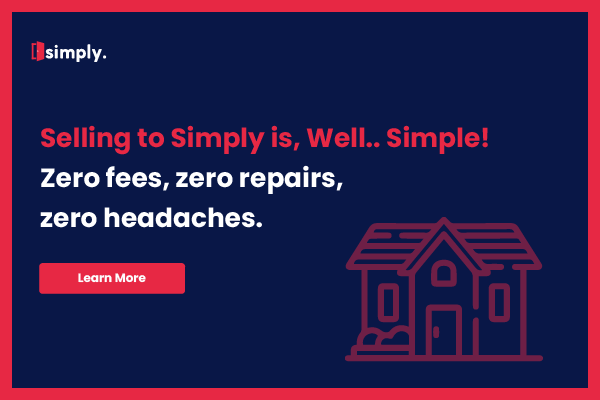Written By Souki Fournier | March 18, 2022 | 4 minute read

Missing a mortgage payment can happen to any homeowner. Unexpected events, like the COVID-19 pandemic, can sideline you, and you might suddenly fall behind. Unfortunately, the longer it takes to get caught up, the more challenging it can be to get your head above water.
But that doesn’t mean it’s impossible. You have options that can help you get back on track.
Keep reading to learn what you can do if you’re behind on your mortgage.
The goal is to get caught up on your payments. But late fees and interest can make this difficult, especially if you’re more than one month behind. However, lenders are often willing to help, so many offer repayment plans to ease the burden.
Here are your options:
If fluctuating interest rates from an adjustable-rate mortgage are causing you to fall behind, then refinancing may be the solution you’re looking for. This is something to consider if you have good enough credit to qualify for a lower, fixed interest rate, and with better rates comes more stability.
But not everyone is eligible. To qualify, lenders generally look for at least a 620 Fico score and 43% debt to income ratio, and even if you are eligible, refinancing may not help. Closing on a refinanced mortgage takes between 30 to 45 days on average, and it can cost up to $5,000 in closing costs.
A mortgage forbearance would allow you to suspend or lower your payments for a specific period. During the forbearance period, no interest or fees are applied, making it especially helpful if you’re experiencing temporary financial struggles or loss of income.
Most lenders won’t report your payments as late while you’re in forbearance. By going this route, you can save and get caught up more manageably, but it’s essential to know that your missed payments aren’t forgiven. You’ll still need to catch up on them by either paying a lump sum or through installments.
Make sure you talk to your lender before enrolling in forbearance to understand how it works thoroughly.
If you’re currently behind on your mortgage payments, getting a loan modification may help. This option allows you to modify your loan terms with your lender permanently. Generally, mortgage lenders negotiate loan modifications with homeowners experiencing a verifiable financial hardship.
The goal of a loan modification is to make your payments more affordable by either extending your loan term or reducing your interest rate. But unlike refinancing, you don’t have to qualify for a new mortgage.
If you’re interested in modifying your loan, contact your lender to see if they have a program.
Other ways to lower your payments are to go through your lender. Your mortgage doesn’t just determine your monthly payment. Your homeowner's insurance, taxes, and property value all play a part in how much you spend each month.
Shopping around for lower insurance rates can reduce your expenses. You can also look into your state’s tax abatement laws. With tax abatement, you can dispute your tax bill and get billing errors corrected. Also, if you’ve gained at least 20% equity in your home, you can speak to your lender about removing PMI (private mortgage insurance).
If you have a stable income, then talk to your lender about creating a repayment plan. When you choose a repayment plan, your lender will take your past-due payments and apply them to your upcoming payments.
This is a convenient option, but it also means higher monthly payments. Another key factor to consider is that the length and the term of the repayment are completely up to the lender. So before agreeing to anything, make sure you can handle the terms.
Getting caught up on your mortgage is the goal, but depending on your situation, it may not be an option at all. If that’s the case, you may want to consider selling. However, you won’t be able to sell your home through a realtor or on the market.
If you want to sell your home while you’re behind on your payments, these are your two options:
Are you in a situation where you owe more than what your home is worth? If the answer is yes, the only way to sell while working with your lender is through a short sale. With this option, your mortgage provider will accept a sales price that’s lower than what you owe.
A short sale can help you navigate out of your mortgage, oftentimes without paying back any outstanding balance. But that’s not a guarantee. Not all lenders will agree to cover the balance, and you could still owe. A short sale will also negatively impact your credit, which will affect your chances of finding another house or even renting.
Selling to a property investor can help you avoid going through foreclosure because they’ll make a cash offer. A cash sale will lead to shorter closing times and allow you to get out of your mortgage sooner. If this is the path you choose to take, make sure you sell to an investor who will make you a fair offer.
If you’re behind on your mortgage and need to sell your home, Simply might be your solution. We will make a fair cash offer on your property that’s based on your property’s market value, and getting started is easy.
It takes less than a minute to receive your offer, so get started now!
